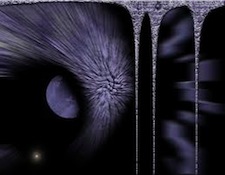It’s the time of year for saving money!

A genuinely weird thought was brought to me the other day by
an old friend who also used to write for Sounds
Like…Magazine. Personally, I don’t believe a word of it, but as even
William Shakespeare said (Hamlet Act I, Scene V) “There are more things in Heaven and Earth, Horatio, than are dreamt of
in your philosophy.”
For whatever it’s worth, here it is: Perhaps somebody can
start a new environmental movement based on “earth song” and save us all…
* *
* * *
Do you know what a barometer is? It’s an instrument for measuring air pressure
and an indispensable part of any good weatherman’s tool kit. What he will do with it is simple: by
checking his barometer reading and comparing it with prior readings and their
corresponding prior weather conditions, he will be able to develop long- and
short-term patterns of what happens at which levels of indicated air pressure
and, from those, be able to predict the coming weather for a particular
geographical area.
Aren’t microphones and barometers really the same thing?
Doesn’t a microphone’s diaphragm move back and forth in response to local air
pressure in exactly the same way – and for exactly the same reason — as the
diaphragm of an aneroid barometer responds to changes in the weather? And when
we record the changes in the electrical signal coming from a microphone to
capture a sound, isn’t that exactly the same thing (although in a different
medium) as is done to record local atmospheric pressure changes by a barograph
– a recording barometer?
Everybody knows that sound is really nothing more than a
series of changes in local (at our eardrums) air pressure that we perceive in
terms of phase, frequency, and amplitude, and that our brain interprets to be a
siren, a dog bark, a test tone, or a
piece of music. So why couldn’t one reasonably say that sound is “the weather
of the ear”?
And if that’s true, why can’t the weather of our planet be
interpreted as sound?

Sounds usually reflect, in their frequency and tone, the
size of the thing that makes them (a string bass is much larger than, for
example, a violin, and produces a much deeper tone). That being true, couldn’t
one reasonably expect that the biggest thing on earth — the Earth, itself – would
produce a VERY low tone, indeed?
Tones can be either a single frequency or a more or less
complex aggregation of several frequencies – a fundamental plus a series of
harmonics. Frequencies are always described by the number of changes that will produce
that frequency in a single period of time: For example, a frequency of 440 Hz, (440 complete
sine-wave changes [from zero to positive peak pressure, to back to zero, to
down to negative peak pressure, to back up to zero] per second) is the musical note “A
above middle C” and serves as a general tuning standard for musical pitch.
20 Hz – twenty changes per second – is generally accepted as the effective lower
limit of human hearing (anything lower than that being more likely to be felt than
heard). What, though, if we were dealing with REALLY low frequencies (like
those produced by an object the size of the Earth); isn’t it possible that the
changes in those might have to be stated not “per second” but per hour, per
day, per month, or even longer?
What if we were
to record the air-pressure changes that make up our weather and play them back
at a speed that would increase their frequency into the range of human hearing?
(Doubling the speed would double the frequency, and so on). What would they
sound like? Would they be musical — truly the song of Mother Earth? Would
they, instead, be like the “demonic” messages said to be recorded backward and
at low level on certain LPs? Would they contain a message, a warning, or
instructions for humanity and for the future of us and our planet? Would it be
in a language that we can understand? And what would that tell us, just in
itself?

Is this the
greatest insight into our world that’s ever happened? Or just nonsense?
I don’t know. I
do know, though, that they’re already recording the sounds of the Sun and of
the Moon, and that you can even hear them on YouTube.
Do you think anybody’s working on the translations?





